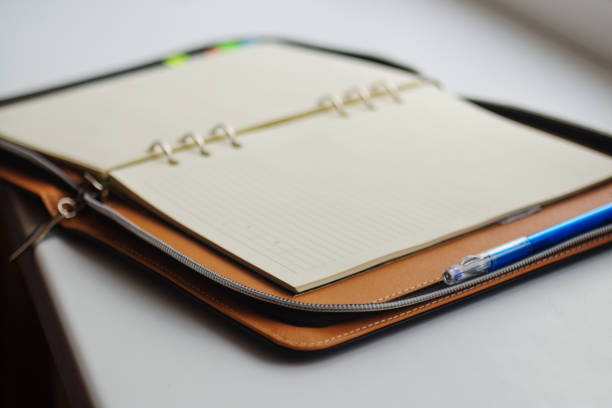In our fast-paced world, finding the right balance between work, personal life, and self-care can be a challenge. However, with a well-planned and flexible daily routine, you can create a harmonious balance and make the most of your time. In this article, we will explore effective strategies to help you balance your time and build a structured but flexible daily routine that suits your needs.
Page Contents
1. Introduction
Achieving a balanced and fulfilling life requires effective time management and a well-structured daily routine. By organizing your time and activities efficiently, you can make progress towards your goals, reduce stress, and find time for the things you enjoy.
2. Understand Your Priorities
Before building your daily routine, it’s important to identify your priorities. Consider what matters most to you in different areas of your life, such as work, family, health, and personal growth. Understanding your priorities will help you allocate time accordingly and ensure that you focus on what truly matters.
3. Set Clear Goals and Objectives
Having clear goals and objectives is essential for managing your time effectively. Define what you want to achieve in different aspects of your life, both short-term and long-term. Break down your goals into actionable steps and create a roadmap to guide your daily activities.
4. Create a Daily Schedule
To build a structured routine, start by creating a daily schedule. Allocate specific time slots for different tasks and activities, including work, exercise, family time, hobbies, and relaxation. Having a well-defined schedule provides a framework for your day and helps you stay organized.
5. Allocate Time for Important Tasks
Identify the most important tasks that contribute to your goals and allocate dedicated time for them. Prioritize these tasks and tackle them during your peak energy hours. By focusing on important tasks early in the day, you ensure that they receive the attention they deserve.
6. Prioritize Self-Care
Taking care of yourself is crucial for maintaining a balanced life. Make self-care a priority in your daily routine. Allocate time for activities that promote your physical and mental well-being, such as exercise, meditation, hobbies, or spending time in nature. Remember, self-care is not selfish; it’s essential for your overall productivity and happiness.
7. Practice Time Blocking
Time blocking is a technique where you assign specific blocks of time for specific activities. This helps you stay focused and avoids multitasking, which can lead to inefficiency and distractions. Block out dedicated time for different tasks and minimize interruptions during those periods.
8. Incorporate Flexibility into Your Routine
While structure is important, it’s equally crucial to incorporate flexibility into your daily routine. Life is unpredictable, and unexpected events may arise. Allow room for adjustments and adapt your schedule and use an undated planner If schedules aren’t the same, day to day. Embracing flexibility enables you to handle changes gracefully without feeling overwhelmed.
9.Minimize Distractions
To make the most of your time, minimize distractions as much as possible. Identify common distractions in your environment, such as notifications on your phone or excessive noise, and take steps to eliminate or reduce them. Create a conducive workspace and establish boundaries to ensure uninterrupted focus during designated work periods.
10. Delegate and Outsource
Recognize that you can’t do everything on your own. Delegate tasks that can be handled by others and outsource activities that are outside your expertise or consume excessive time. By delegating responsibilities, you free up your time for more important and high-value tasks.
11. Learn to Say No
Learning to say no is an important skill in maintaining a balanced routine. Understand your limits and prioritize your commitments. Don’t feel obligated to take on every request or task that comes your way. By setting boundaries and saying no when necessary, you protect your time and energy for the things that truly matter.
12. Evaluate and Adjust Your Routine
Regularly evaluate your routine to assess its effectiveness. Reflect on your productivity, fulfillment, and overall balance. Identify areas that need improvement or adjustments and make necessary changes to optimize your routine. Experiment with different approaches until you find what works best for you.
13. Seek Accountability and Support
Having accountability and support can greatly enhance your ability to maintain a balanced routine. Share your goals and progress with a trusted friend, family member, or mentor who can hold you accountable. Seek support from like-minded individuals who understand the importance of balance and can provide guidance and encouragement.
14. Maintain a Healthy Work-Life Balance
Building a structured and flexible daily routine is ultimately about maintaining a healthy work-life balance. Remember to prioritize quality time with loved ones, engage in activities that bring you joy, and take breaks to recharge. Strive for a holistic approach that nurtures your personal and professional well-being.
15. Conclusion
Balancing your time and building a structured but flexible daily routine is essential for achieving harmony and fulfillment in your life. By understanding your priorities, setting clear goals, creating a schedule, and incorporating flexibility, you can optimize your productivity, reduce stress, and make time for what truly matters.
Frequently Asked Questions (FAQs)
- How do I find the right balance between work and personal life?
Finding the right balance between work and personal life requires setting boundaries, prioritizing activities, and managing your time effectively. It’s important to allocate dedicated time for both work and personal activities and create a schedule that allows for flexibility and self-care.
- Is it possible to have a structured routine and still be flexible?
Yes, it is possible to have a structured routine and be flexible at the same time. Building a structured routine provides a framework for your day, while incorporating flexibility allows you to adapt to unexpected events or changing priorities without feeling overwhelmed.
- How can I minimize distractions and stay focused?
To minimize distractions, create a conducive work environment, turn off notifications on your phone or computer, and establish boundaries with others. Practice techniques such as time blocking and single-tasking to stay focused on specific activities without getting sidetracked.
- How often should I evaluate and adjust my routine?
It’s recommended to evaluate and adjust your routine periodically, depending on your needs and circumstances. You can assess your routine every few weeks or months to ensure it aligns with your goals, priorities, and overall well-being.
- What should I do if I feel overwhelmed or off balance?
If you feel overwhelmed or off balance, take a step back and reassess your priorities and commitments. Identify areas where you can make adjustments or seek support from others. Remember to prioritize self-care and make time for activities that bring you joy and rejuvenation.

Lois Lane is a professional blogger and a seasoned Content writer for wellhousekeeping.com. With a passion for simplifying complex Home Decor topics, he provides valuable insights to a diverse online audience. With four years of experience, Lois has polished his skills as a professional blogger.




